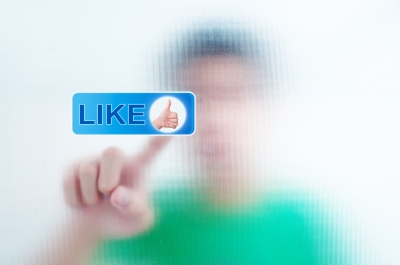The dangers of social media are well known. To date there have been movies, TV shows and countless news stories documenting tragic events which have stemmed from major social networking websites such as Facebook and Twitter. These events range from parents bullying children on fake accounts to victims being stalked and even killed by online predators. Ironically, these twisted scenarios tend to start from nothing more than a simple “friend” request.
Social networking is not a bad thing, and it can be an effective tool when used constructively. However responsible parents need to be aware of the risks in letting their children have unrestricted access to the internet.
Child Predators
This is by far the biggest fear that parents have when their children are online. The simple reality is that not everyone who presents himself as a peer of your child, is necessarily who he says he is. It is important to know, not only who your children’s friends are on social media networks, but also who is already following their accounts and requesting to be their friend. While it is true that some individuals might genuinely be looking to meet new people online, child predators often present themselves as friendly and might not look particularly suspicious, particularly when they are hidden behind a computer monitor. Donovan (2011) writes:
According to the National Crime Prevention Council over a million teenage girls are victimized psychologically, physically, or both as a result of online socializing. By giving up privacy for the online world of instant gratification, teens are unknowingly helping create an online culture that breeds victimization and serves to ignite assaults that were traditionally found off-line.
Relationships
Starting a relationship online might not be something that older generations are familiar with, but it is a booming industry in current times. With people more focused on work and spending less time socializing in person, they are turning to the computer to find companionship. Often times, an online acquaintance can evolve into a romantic relationship via chat, text messaging, and even physical visits. Of particular concern to most parents these days is the practice of sexting. Sexting involves sending nude or semi-nude photos of yourself to someone else using the internet. Upon examining the psychological repercussions of sexting, Donovan (2011) writes:
Sexting is one of the most psychologically damaging aspects of online victimization that can trigger symptoms associated with Post Traumatic Stress Disorder (PTSD). Some psychological symptoms experienced by teen sexting victims include flashbacks, isolation, self destructive behaviors, and sleep disturbance. Often, as in the case of rape victims, the psychological trauma of online victimization can have a lasting impact.
Home Break Ins
[showmyads]Social media has become a major tool for burglaries. Do your children post a tweet each time they step into the mall? Do they post photos of recently acquired gadgets or gizmos? Are they counting down to a vacation? Do they tweet the minute you step out of the house? All of these are alerting their followers of where they are, if someone is at their residence and what kind of items are available in their home. Home break ins can be particularly traumatizing for children, and the psychological blow will be even more acute if they feel that they are responsible for what happened. Teach your children how their actions on online social communities affects not only them, but also everyone else in the family.
Bullying
Over the years social media has become a way for people to hide behind computers and mistreat others. Cyber bullying can come in many different and sometimes unexpected forms. “Gone are the days when a pedophile might be the only predator online trying to victimize your teen, with the ease of communicating over the social network, teens are now able to victimize each other” (Donovan, 2011). No one knows your children better than you do. If you believe that the time they spend on social media websites is having a significant effect on their attitude or mood, then start asking questions.
If you think that your children might be the ones doing the bullying then take action right away. Shut down their accounts and speak to them about the possible negative consequences of this type of online behavior.
Have Restrictions But Open Communication
The best way to handle social media issues with your children is to keep an open flow of communication and be upfront about your expectations and boundaries. If you are not familiar with online concepts such as Tweeting, Liking, Emailing, IMing, camming, etc. then start learning now. Most of the larger social networking sites like Facebook, MySpace and Twitter offer easy to use parental controls and guidelines.
Have access to your children’s online accounts and maintain their privacy settings. The truth is that they will eventually have access to these tools whether you allow them to or not. It is therefore important for parents to take control of the situation now, and teach their kids about the great things they can accomplish with social media, as well as the hidden dangers that they need to avoid.
——————————————————————————————-
About the Author: Michelle is a blogger for Forward Home Security. She loves DIY projects, summertime, and keeping her family safe!
References
Donovan, E. (May 2, 2011). How the social network is changing teen victimization. Psychology Today. Retrieved April 8, 2012 from http://www.psychologytoday.com/blog/youth-and-tell/201105/how-the-social-network-is-changing-teen-victimization
Image courtesy of FreeDigitalPhotos.net
Related articles
- Anti-Sexting PSA Tells Girls To Stop Sending Sexy Pics (newsfixnow.com)
- Cyberbullying Online – Statistics and What You Can Do About It (CraigPeterson.com)
- Teen Sexting – The Real Issue (psychologytoday.com)


